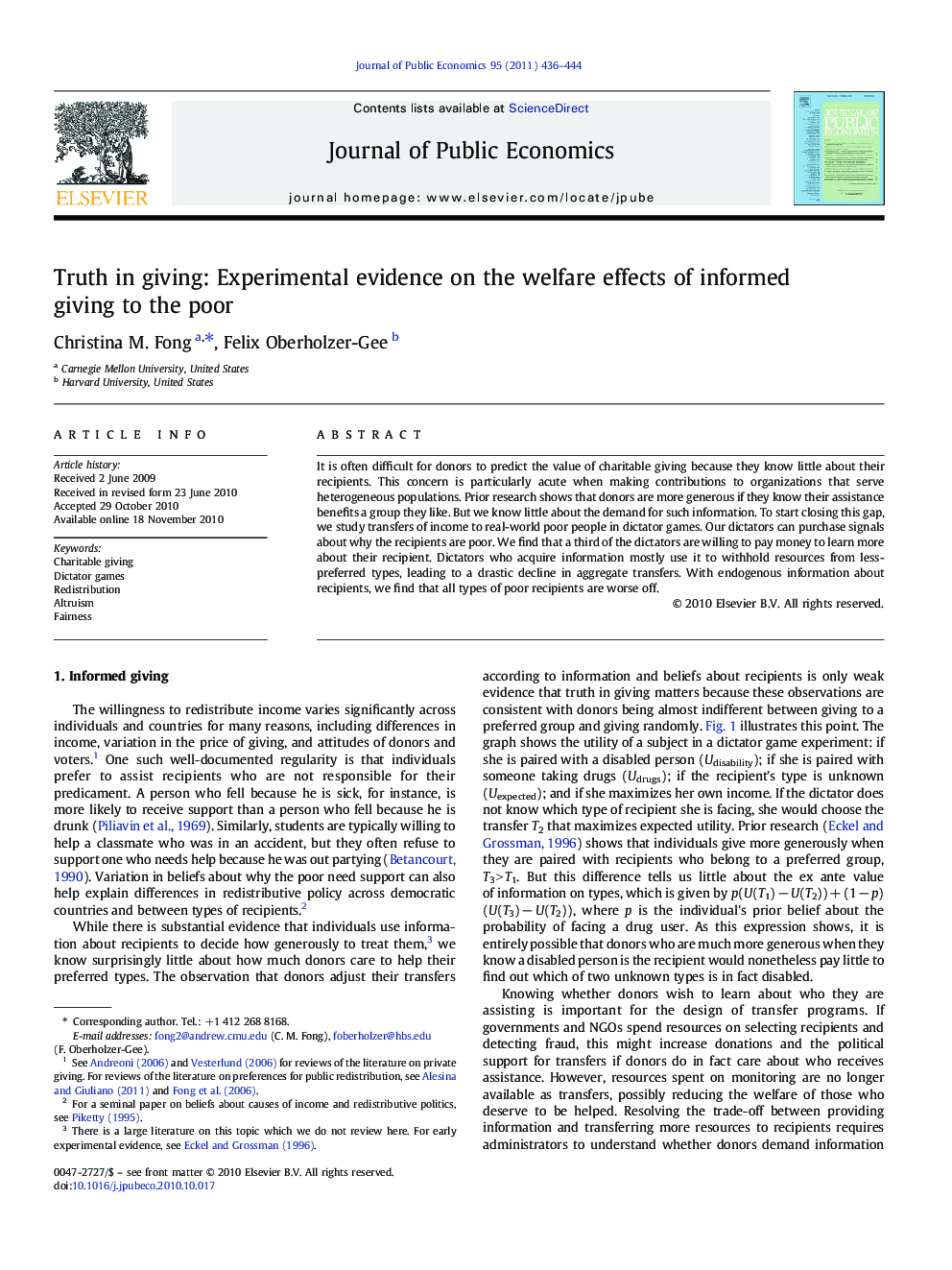| Article ID | Journal | Published Year | Pages | File Type |
|---|---|---|---|---|
| 970029 | Journal of Public Economics | 2011 | 9 Pages |
It is often difficult for donors to predict the value of charitable giving because they know little about their recipients. This concern is particularly acute when making contributions to organizations that serve heterogeneous populations. Prior research shows that donors are more generous if they know their assistance benefits a group they like. But we know little about the demand for such information. To start closing this gap, we study transfers of income to real-world poor people in dictator games. Our dictators can purchase signals about why the recipients are poor. We find that a third of the dictators are willing to pay money to learn more about their recipient. Dictators who acquire information mostly use it to withhold resources from less-preferred types, leading to a drastic decline in aggregate transfers. With endogenous information about recipients, we find that all types of poor recipients are worse off.
Research Highlights► We conduct dictator games where the recipients are real-world poor people. ► Dictators can purchase signals about why their recipients are poor. One third of them choose to do so. ► Giving is much lower with endogenous information about recipients versus no information. ► We examine two explanations for this that are plausible and consistent with our data.
